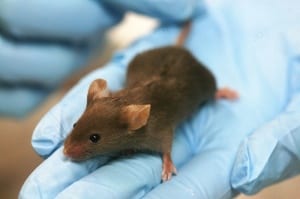
Inflammatory bowel disease (IBD), which can appear as either ulcerative colitis or Crohn’s disease, damages the lining of the digestive tract and leads to abdominal cramps, incomplete digestion and nutritional deficiencies.
Previous research on IBD gave researchers reason to suspect that the CD39 gene, which is involved with inflammatory responses and immunity, may play a role in IBD. Researchers at Harvard University, led by Simon Robson, found further evidence for this gene’s involvement when they removed it from a group of mice. Compared to normal animals, the genetically engineered mice were more susceptible to a drug that causes colitis symptoms similar to those experienced by humans. The results were published this week in the Proceedings of the National Academy of Sciences.
With these animal model results in hand, the researchers turned their attention to humans. They searched a database of genetic information for DNA variants that are predicted to affect how much protein is made from the CD39 gene. One SNP in particular stood out. Not only did the A version of this SNP correlate with lower CD39 protein levels, but it was also associated with risk for Crohn’s disease. The researchers determined that one copy of the A version of this SNP increased the odds of Crohn’s disease by 1.14 times, while two copies increased the odds by 1.3 times.
Although the study focused only on Europeans, the authors believe their results will also be relevant to people of other ethnicities. The A version of that is associated with increased odds for Crohn’s disease in Europeans is also associated with lower levels of CD39 protein in people with African, Chinese and Japanese ancestry. The importance of this SNP may vary among ethnic groups, however, because the prevalence of the A version differs.
The researchers suggest that future studies will help define exactly how CD39 influences IBD and identify other SNPs that may influence risk for the disease.